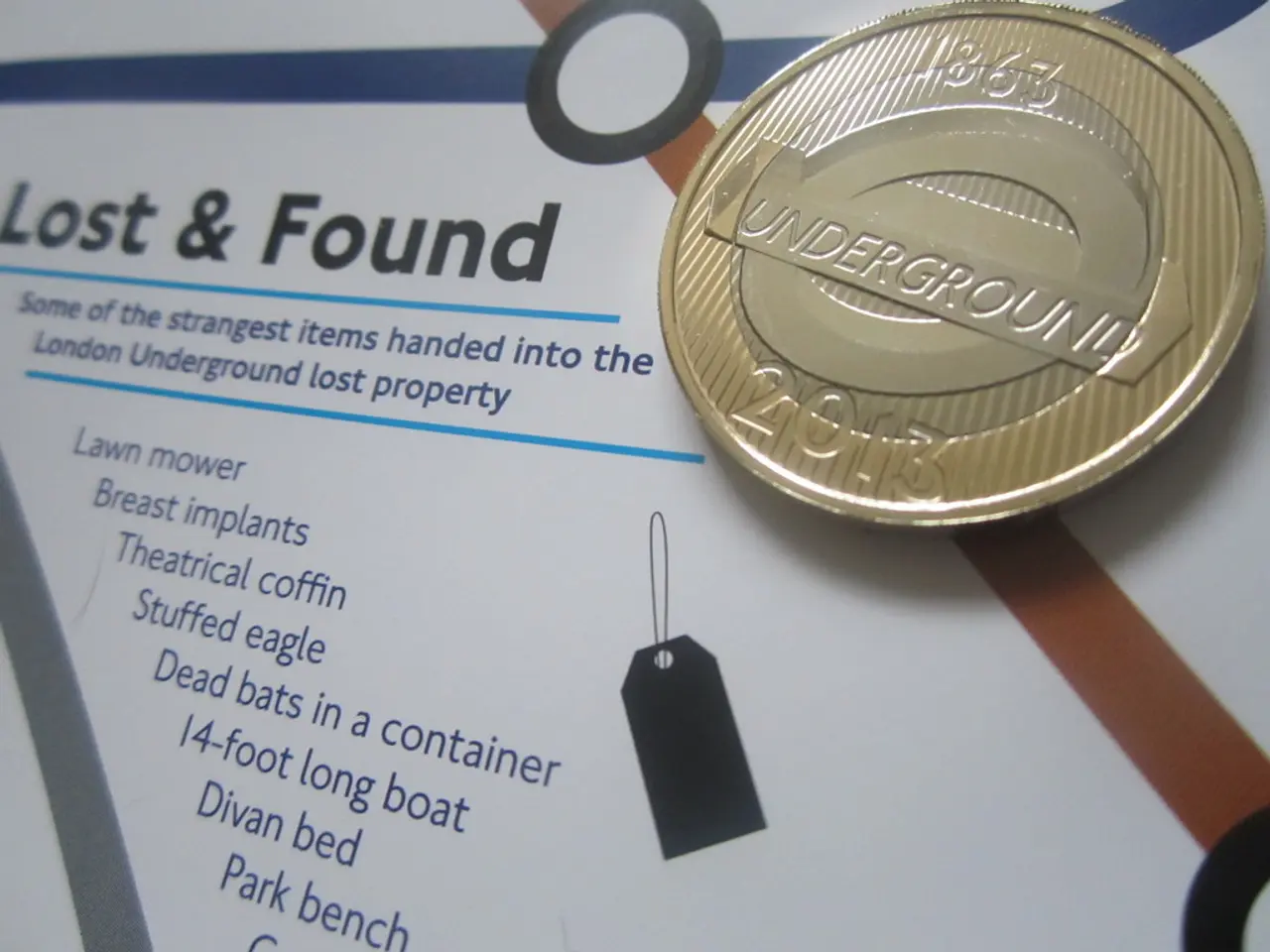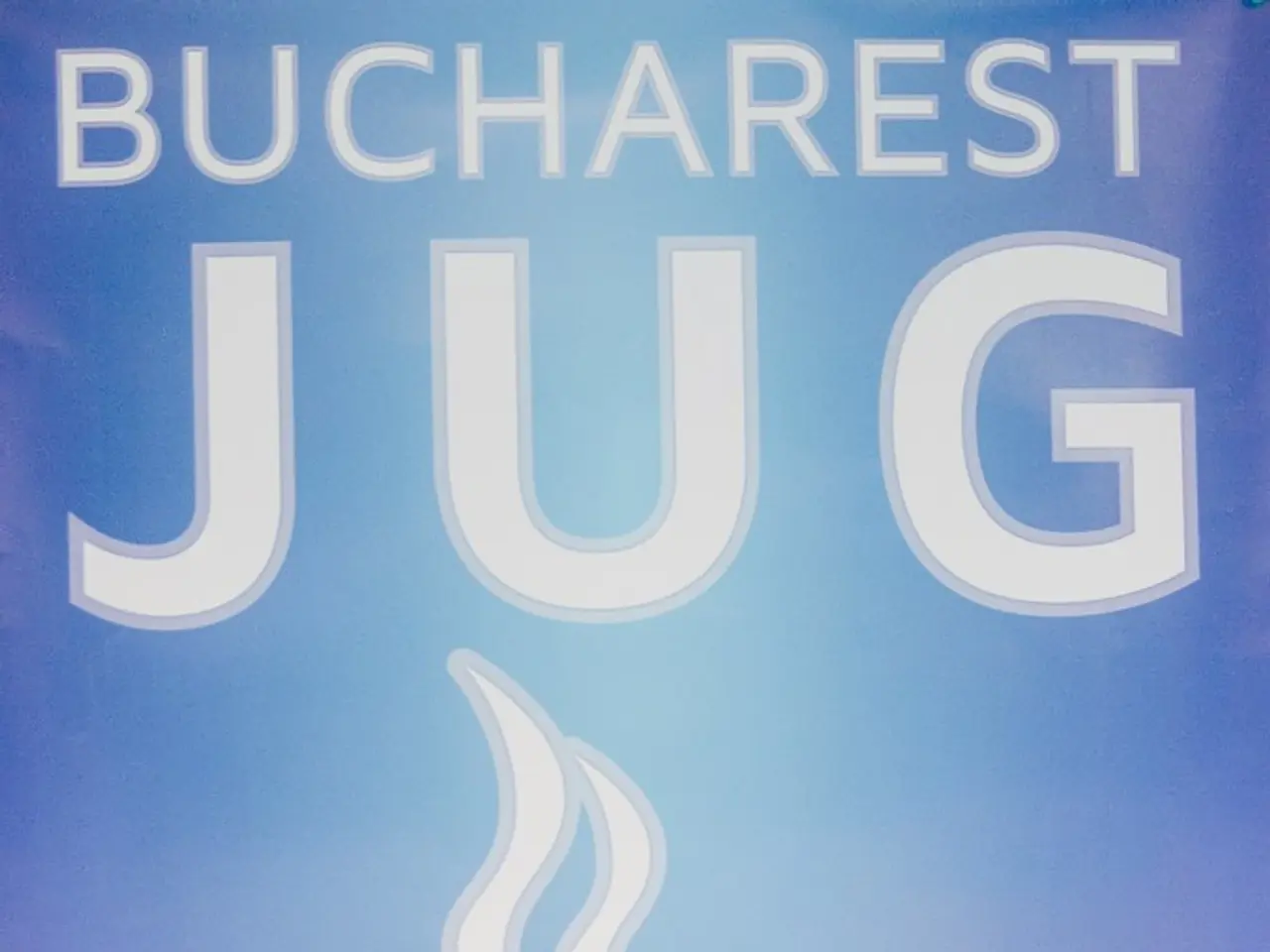Token Payments Get a New Boost with Fnality's Earmarking; £20 Million in Funding Unveiled
In a significant move, Fnality, a leading fintech company, has applied for a banking license for its new US subsidiary, Fnality XB. This move suggests that Fnality is planning to expand its services to cross-border payments.
One of Fnality's primary goals is to expand FX settlement once a second currency goes online, increasing the range of use cases. The company's innovative earmarking feature for tokenized central bank reserves is set to revolutionise institutional settlement solutions. This capability enables programmable payments that lock funds for specific transactions, securing liquidity specifically for a trade or settlement, and reducing risks such as settlement failures and counterparty credit risk. By earmarking reserves, institutions can ensure that the underlying central bank money backing transactions cannot be used elsewhere until settlement completes, increasing trust and efficiency in post-trade processes.
This earmarking feature directly addresses challenges in traditional settlement where funds might be double-used or delayed due to uncertainties in liquidity. It leverages distributed ledger technology (DLT) to provide transparency, finality, and automation through smart contracts, streamlining over-the-counter trades and improving interoperability between legacy and digital financial infrastructure. The innovation thus supports safer, faster, and more reliable settlement solutions for institutions using tokenized central bank reserves.
The banks involved in developing the programmable functionality for Fnality are Lloyds Bank, Santander, and UBS. Fnality International has also announced a new feature called earmarking of funds for securities transactions. John Whelan, Managing Director of Digital Assets at Banco Santander, stated that earmarking helps enable atomicity in transactions, bringing institutional blockchain-based applications one step closer to utilization at scale in the banking industry.
Fnality raised a £50 million Series A in 2019 and a £77.7m Series B in 2023. The company had almost £34 million in cash on hand at the year end of 2024. Notably, Goldman Sachs, BNP Paribas, and DTCC participated in the Series B funding. Fnality International disclosed a £20 million convertible loan note issued on 30 September 2024, which will convert to equity upon completion of Series C funding.
In other developments, Fnality international has received a £20 million ($27m) convertible loan note from unspecified sources last year. The company is backed by 20 of the world's largest global financial institutions. Fnality is planning to launch a dollar version of its settlement system.
However, it's worth noting that Fnality didn't earn any revenue in its first full year of operation (2024), losing £28.9 million pre-tax. Despite this, the company's innovative solutions and strategic partnerships position it well for future growth in the cross-border payments market.
The three banks, Lloyds Bank, Santander, and UBS, are the first to go live on the sterling Fnality payment system (£FnPS). The earmarking feature adds to the 24/7 instant payments previously showcased for margin payments, FX swaps, and repo transactions, further enhancing Fnality's offerings in the financial sector.
[1] Source: Fnality's official website and press releases.
- Fnality's earmarking feature, powered by blockchain technology, is set to disrupt traditional settlement solutions in the banking industry, as it promises to address challenges such as double-usage and delayed funds due to liquidity uncertainties.
- Goldman Sachs, BNP Paribas, and DTCC, among others, have invested in Fnality, demonstrating strong confidence in the company's innovative finance solutions, particularly its ability to streamline cross-border payments using technology like DLT and smart contracts.
- With the launch of a dollar version of its settlement system and a strategic move to expand services in the US, Fnality is poised to deliver valuable insights and enhancements to the cross-border payments industry, capitalizing on opportunities in the banking and finance sector.




